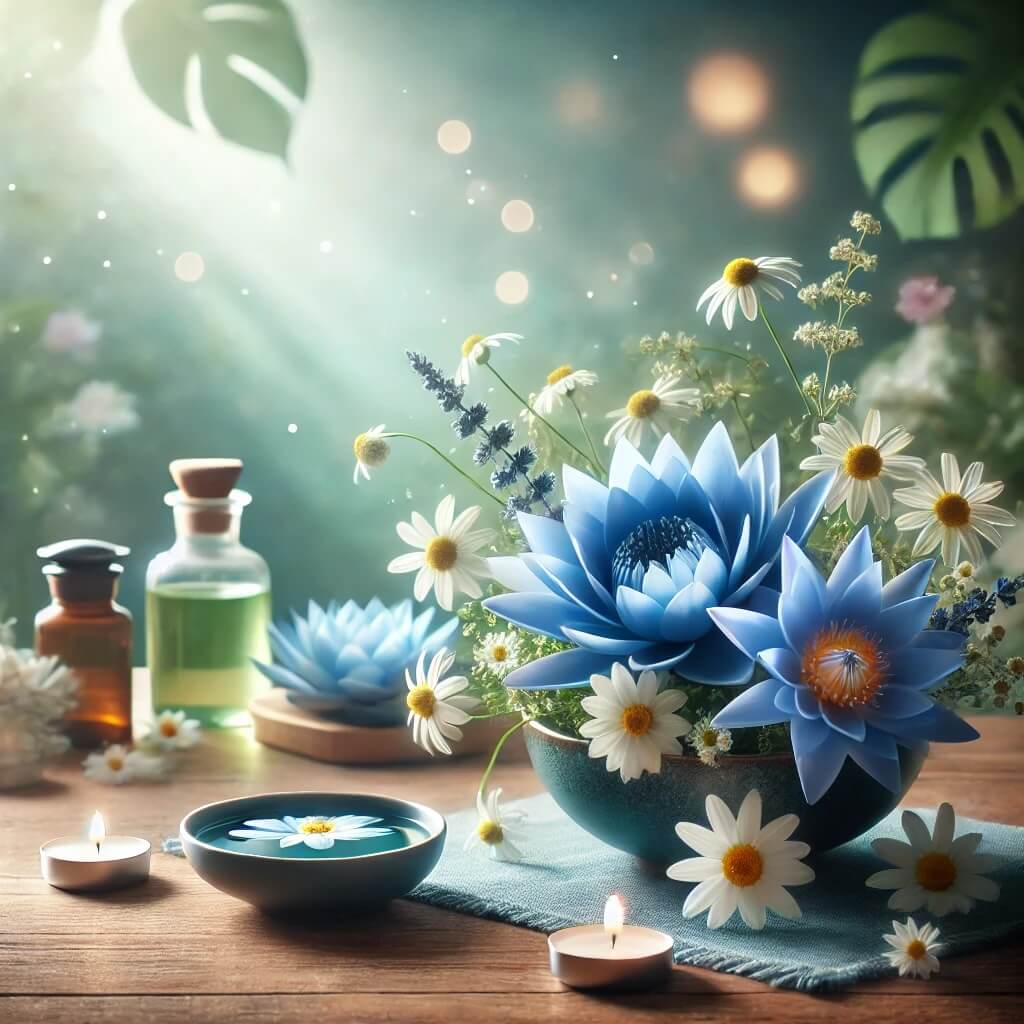When it comes to herbal teas and wellness products, the options can be overwhelming. Two popular herbs that stand out for their unique properties and health benefits are Blue Lotus and Chamomile. Both have rich histories and have been used in traditional medicine for centuries. However, they offer different effects, flavors, and applications. In this article, we’ll explore the differences between Blue Lotus and Chamomile to help you decide which herb is best suited for your needs.
The Essence of Blue Lotus
Blue Lotus, also known as Nymphaea caerulea, is celebrated for its beautiful flowers and calming effects. Traditionally used in ancient Egyptian culture, Blue Lotus has been associated with spirituality and tranquility. The flowers contain several bioactive compounds, including alkaloids and flavonoids, which are known for their potential calming and mood-enhancing properties. Blue Lotus is often brewed into teas, used in tinctures, and incorporated into wellness products aimed at relaxation and stress relief. Its subtle, floral flavor profile makes it a delightful addition to various herbal blends.
The Charm of Chamomile
Chamomile, particularly the German variety (Matricaria chamomilla), is one of the most well-known herbs globally. It has been cherished for its soothing properties and is commonly consumed as a tea before bedtime to promote restful sleep. Chamomile contains flavonoids and other compounds that exhibit anti-inflammatory, antioxidant, and mild sedative effects. Its pleasant, apple-like flavor appeals to many, making it a popular choice in herbal teas. Chamomile is also widely used in skincare products for its calming and anti-inflammatory benefits.
Comparative Benefits
When comparing Blue Lotus and Chamomile, it’s essential to consider their benefits:
• Relaxation and Stress Relief
Both herbs are renowned for their calming effects. Blue Lotus may enhance mood and promote a sense of tranquility, while Chamomile is often used for its sleep-inducing properties.
• Flavor Profile
Blue Lotus has a delicate floral flavor, while Chamomile offers a more pronounced apple-like taste. Depending on your preference, you might choose one over the other for your tea blends.
• Cultural Significance
Blue Lotus is deeply rooted in ancient Egyptian traditions, often symbolizing rebirth and purity. Chamomile, with its historical use in European herbal medicine, is a staple in wellness practices.
Considerations for Use
Choosing between Blue Lotus and Chamomile largely depends on your specific needs and preferences:
• For Relaxation
If you’re seeking a soothing tea to unwind after a long day, both herbs are excellent choices. Blue Lotus may offer a unique twist with its floral notes, while Chamomile provides a familiar comfort.
• For Sleep Support
Chamomile is often regarded as the go-to herb for promoting sleep. Its sedative properties can help calm the mind and prepare the body for rest.
• For Wellness Products
Both herbs can be incorporated into wellness products, but consider the desired effects. Blue Lotus may be better suited for mood-enhancing products, while Chamomile shines in formulations targeting skin inflammation or stress relief.
The Right Choice for You
In the debate between Blue Lotus and Chamomile, the best choice ultimately depends on your personal preferences and wellness goals. Both herbs have unique qualities and offer distinct benefits, making them valuable additions to any herbal tea collection or wellness product line. By understanding their characteristics, you can choose the one that aligns best with your needs, whether for relaxation, sleep support, or holistic wellness.

